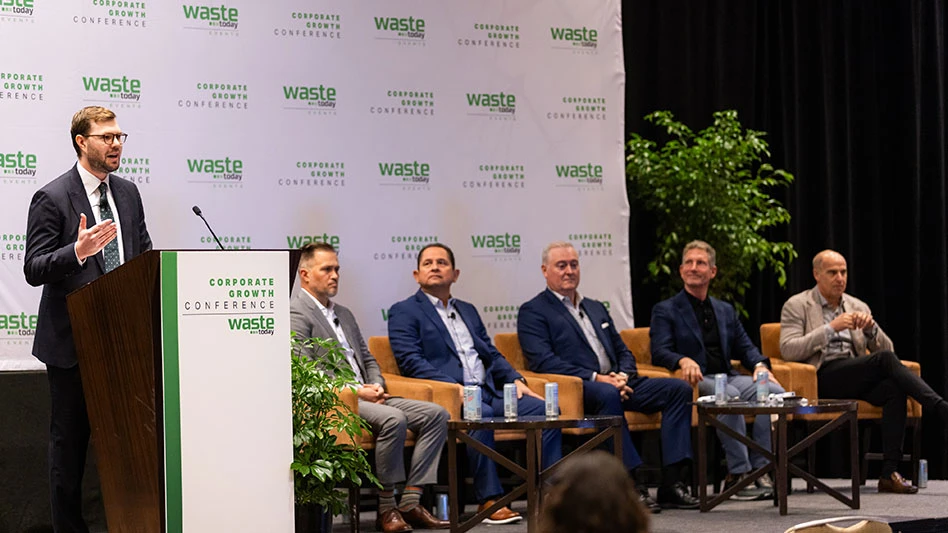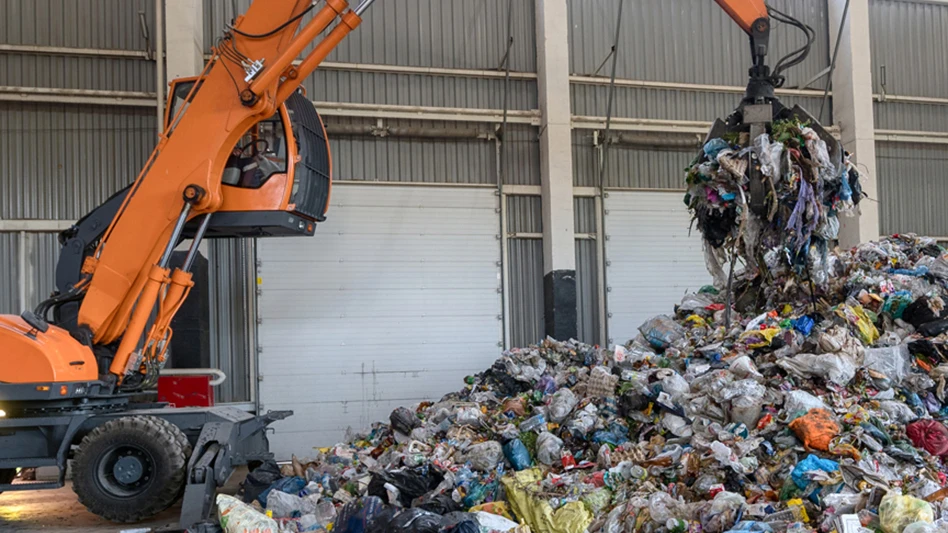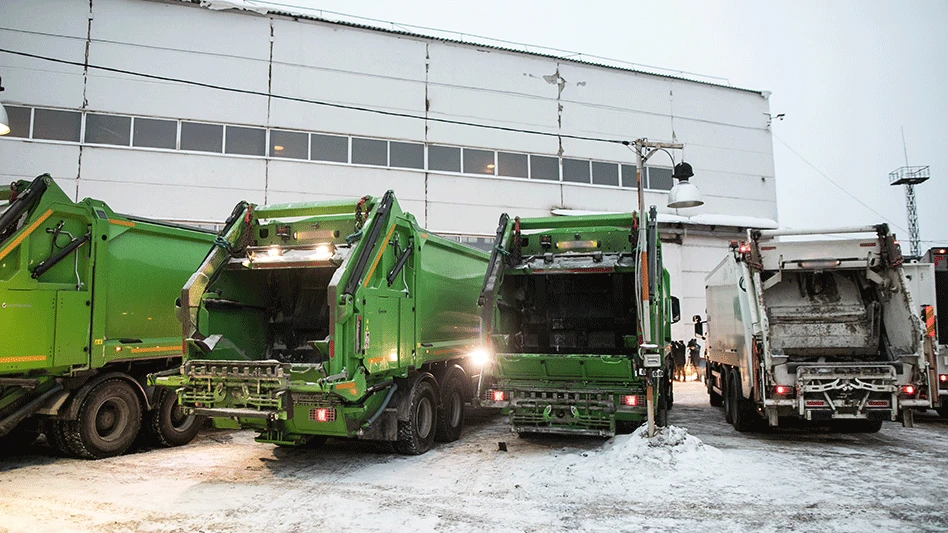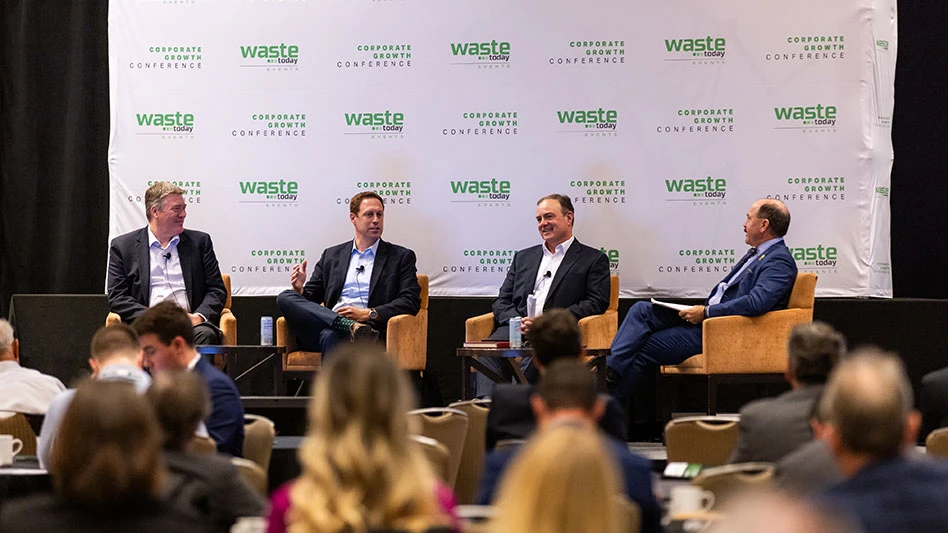
In my first few years as a young professional and during the beginning of my career, life was in constant flux.
In college, I was used to a pace of constant change—a new roommate or two in the mix, old friends graduating and having to make new friends and a new set of classes two or three times a year. I was exhausted and couldn’t see it and soon had to make an important decision: What will I do after I graduate?
Many people in the solid waste industry seem to wander into it; that was my experience, too. I got my start through making connections at my church. Steve Harbin and Curtis Reynolds of Harbin Engineering in Forsyth, Georgia, hired me on for my first job.
Even though my day-to-day looks like designing landfills and other waste management facilities, I believe I learned some universally applicable lessons during that time and I’d like to share them.
1. Focus on self-work
Everyone needs a north star or a guiding light that determines how you approach life and work. Write down your core values. We all need something transcendent to carry us through the mundane.
It’s also good to know yourself. I’d suggest taking a few personality assessments, such as StrengthsFinder, DISC, Myers-Briggs or Working Genius. Take note of what makes a great day at work, ask your supervisor for feedback or ask friends for three words that best describe you. You’ll see common themes emerge. Also, learn from the past—read books, find some good podcasts and keep a TILL (today I learned log) or a work journal. Review it from time to time.
Most importantly, be honest with yourself. Know where you excel and know where you need improvement. Discover your learning style and learn how to teach yourself. Sometimes, I’ll work on engineering textbook problems to stay technically solid. You could try Coursera or Skillshare to increase your skillset. Every personality type has its own weaknesses that you can’t “fix;” instead learn how to manage them.
As the person most interested in your success, take ownership of your professional development. For me, that has included pursuing and obtaining my professional engineering license. Try to map out where you want to be in your future career. Even if your destination changes, the practice of doing so will be beneficial for you.
2. Take time for yourself
Balance is a simple yet often overlooked practice and applies to the physical (exercise and diet) as well as the intellectual, mental, emotional, etc. When I started my first job, I lived in a small town, worked long hours and felt alone and restless. I drove by a park during an Ultimate Frisbee game, and soon, Frisbee became my Tuesday routine.
Physical exercise and time with people helped balance other areas of life. Understand what you need to thrive. Learn how to rest and recuperate. Know when you need to take a day off work to avoid burnout.
Many articles I’ve read advise workplaces to become all things to their employees. I think it’s a mistake as an employee to seek all your fulfillment at work. Satisfying work and good company culture matter—work is where we spend the majority of our lives—but it’s disappointing when work lets us down.
3. Say ‘yes’ to new opportunities
When it comes to the workplace, start saying “yes” to opportunities that arise (and being OK with asking for help). By saying yes, I gained valuable experience as an interim landfill manager—something that was not an expected role for me. Volunteer for positions and stretch outside your comfort zone. Be curious, ask questions and talk to everyone (even if they aren’t in your exact lane)—some of the industry’s greatest innovations are borrowed from an outside industry.
Most likely, you have something that older professionals don’t have—an excess of time. This can work in your favor. Often, it is availability that makes you qualified for a new task. You can see the work as grunt work, or you can see it as an investment in your professional growth.
As Mark Twain purportedly said, “If it’s your job to eat a frog, it’s best to do it first thing in the morning.” Do the hardest task first, and you will enjoy the double benefit of having accomplished something right away as well as not spending the rest of the day avoiding that task. Then, as you leave work for the day, endeavor to clear your mind. For me, that’s making a list of each day’s loose ends to handle the next day.
You get out what you put in. In other words, you will reap what you sow. So, what do you want to grow in the next three months, one year or five years? Consistent inputs add up over time. Discipline will ensure long-term success.
4. Strive for excellence
Work at being excellent at what you do. Do great work, and let it speak for you. But also speak for yourself. Find public speaking opportunities. Public speaking and presenting skills give you visibility, elevate your career and help you get noticed by the right people.
For me, teaching a Sunday morning class and seminars at a local school have grown into teaching the Solid Waste Association of North America (SWANA) Georgia chapter’s Certified Landfill Operator course and presenting at conferences.
Here’s a trick to get started: next time someone from your company has a presentation, ask if you can present one slide. If you’re faithful to a small thing, you will be entrusted with much more.

5. Seek connections in your field
To fast-track your career, find a mentor. You can save a lot of time, effort and frustration if you find someone who has the wisdom and will take the time to talk with you. I’m thankful for the people outside my workplace who have encouraged me in my career and other involvements.
If you’re not sure where to begin, join a professional organization or, preferably, several. Most organizations are very interested in recruiting young professionals (YPs) right now, and very likely you’ll meet people in the same professional stage as you. For me, SWANA has provided great networking and mentoring opportunities in the industry. Join (or maybe even start) the YP group in your professional organization.
Additionally, network, network, network! Meet new people, form new connections and peer relations, hand out business cards and create an engaging LinkedIn profile.
6. Make a good impression
Try to gain a variety of experiences. In many ways, this is easier at the start of your career. Don’t be too narrowly focused too quickly and become a specialist in a field you don’t enjoy. Be a generalist for your first five to 10 years and slowly find your niche.
Whenever you change workplaces, your reputation follows you; make it a good one. Be proactive and ask what you can do to help others.
In a world where bosses may speculate that the new generation is entitled, prove them wrong. Instead, work hard to create value, and you will command respect.
Show initiative. Ask for assignments. When you have questions, demonstrate that you have tried a solution or have an idea of how to tackle a problem. Be proactive in communication. Good project checkpoints, at minimum, are at 30 percent, 60 percent and 90 percent complete. Tag along to important meetings (before suddenly one day you’re the presenter) and volunteer to take notes for your boss, even if it means volunteering your time.
Whether you work in a small company or on a team within a multi- national company, you can lead even if you aren’t in charge. For me, leading the Georgia SWANA YP committee agave me experience running meetings I wouldn’t otherwise have had. A good company will encourage your development (but you may have to convince them the time investment is worth it at first).
In a world that seems polarized, with public examples few and far between, learn how to respectfully disagree with someone. For a little extra motivation, you’d be surprised how often someone on the board who gets to approve or deny one of your projects is on the other side of a bridge you could have burned.
7. Be ambitious
You have heard the saying, “Follow your passion,” but I would tell you, “Take your passion with you.” Discover where your passion fits in your industry. A small example of this: I love music. Recently, I wrote and performed a 60-second song to summarize a presentation about transfer stations, and it was a hit. I’m also passionate about teaching, and so I look for those opportunities in the industry.
Be respectfully audacious and realize that sometimes a “no” actually means “not at this time” or “not yet.” As a fresh YP, I became interested in the waste conversion and energy recovery (WCER) industry. I saw a vacant position for SWANA’s vice director, so in all my unqualified ambition, I applied. Needless to say, I did not get elected, but I was kindly invited by the new vice director to get involved as a committee chair.
Because of that, I have spent quite a few years becoming more immersed in the industry, helping recognize excellent WCER facilities and individuals in the industry and providing feedback on proposed legislation. This year, as the vice director finished her term, SWANA members elected me as the new vice director.
The step behind you leads to the step before you. Just keep taking steps. And over time, keep track of your work experience and accomplishments! And remember to serve others. Others have helped you, so give back.
As I reflect on my first few years as a brand-new young professional, I hope the things that grounded me then will stay with me throughout my career. And I hope they help you, too.
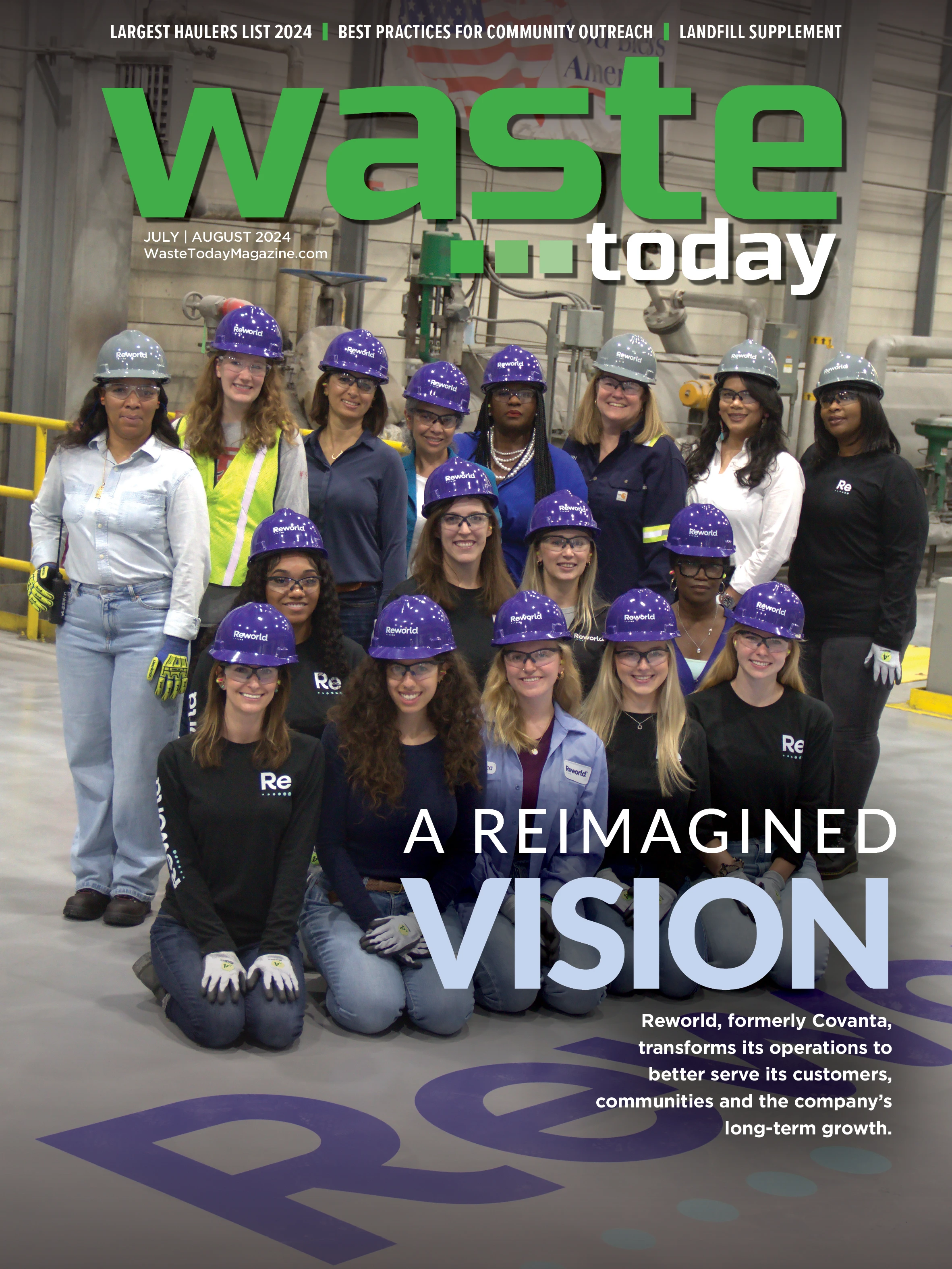
Explore the July/August 2024 Issue
Check out more from this issue and find your next story to read.
Latest from Waste Today
- Aspen Waste Systems expands into Denver-metro market
- NYSAR3 seeks respondents to commercial recycling survey
- Aemitis AD system goes online
- Liebherr breaks ground on logistics center
- Rubicon appoints new CFO
- Nexus W2V attracts funding for waste conversion project in Indiana
- Republic Services signs up for oil recycling program
- Alabama city offers partnership to divert electronics from landfills
